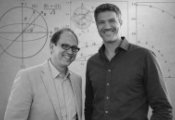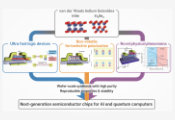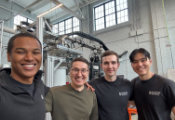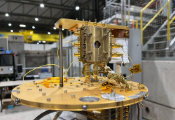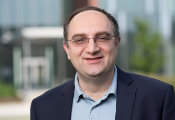Interdisciplinary Rice Graduate Program Earns $3 Million NSF Grant
HOUSTON, August 29, 2024 -- A research traineeship program developed by a team of Rice University faculty led by Junichiro Kono has received an award of $3 million over five years from the National Science Foundation (NSF) to equip a new generation of scientists and engineers with the skills needed to serve as leaders in quantum technology innovation.
The NSF Research Traineeship (NRT) Program is “designed to encourage the development and implementation of bold, new potentially transformative models for STEM graduate education training,” according to the agency website. The Rice NRT Program will provide interdisciplinary training to a total of 30 students (14 directly funded by the award) based on a co-advisory model that pairs each trainee with faculty mentors from different disciplines in natural sciences and engineering, combining expertise from quantum physics, optics and nanotechnology.
The traineeship aims to equip graduate students with the skills needed to tackle complex problems in the field of cavity quantum electrodynamics, which studies the unique light-matter interactions that occur in micro- and nanoscopic cavities.
“This field is critical for innovation in ultrahigh-performance computing, advanced materials and energy harvesting,” said Kono, Rice’s Karl F. Hasselmann Professor in Engineering, professor of electrical and computer engineering, physics and astronomy and materials science and nanoengineering and faculty director of the Smalley-Curl Institute (SCI); and Alessandro Alabastri, assistant professor of electrical and computer engineering and co-principal investigator of the project. “The program will impact the education of more than 150 Rice graduate students over the course of five years thanks to the wide range of planned activities, including new courses, internships and both personal and career development programs.”
“This program will cover both the basic science and the practical use of quantum technology,” Alabastri said. “The plan is to combine theory and experiments, leveraging advanced spectroscopic techniques and numerical modeling in order to understand the behavior of quantum materials interacting with photons in nanoscale volumes. Such understanding could serve to improve existing quantum devices and occasion insights into fundamental principles that could lay the foundation for entirely new technologies.”
Kono and Alabastri said the program’s interdisciplinary approach bridges quantum mechanics, photonics and materials science, aiming to push the boundaries of current knowledge and technology in these fields. A standout feature of the program is the co-mentorship model across natural sciences and engineering, which will be facilitated by the SCI.



